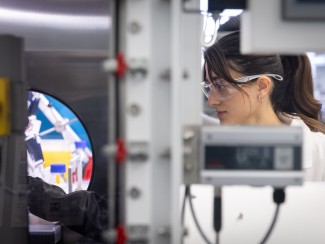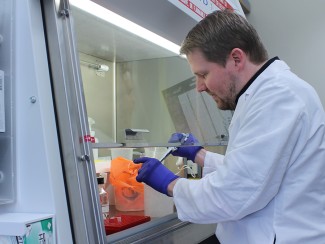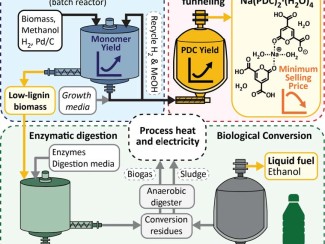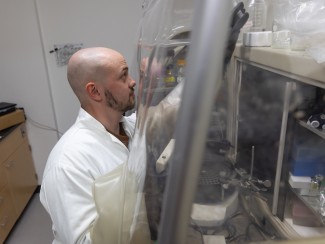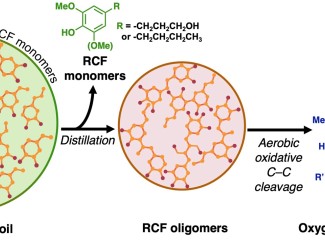Kevin Myers recognized with Great Lakes Bioenergy Research Center service award for computational biology support
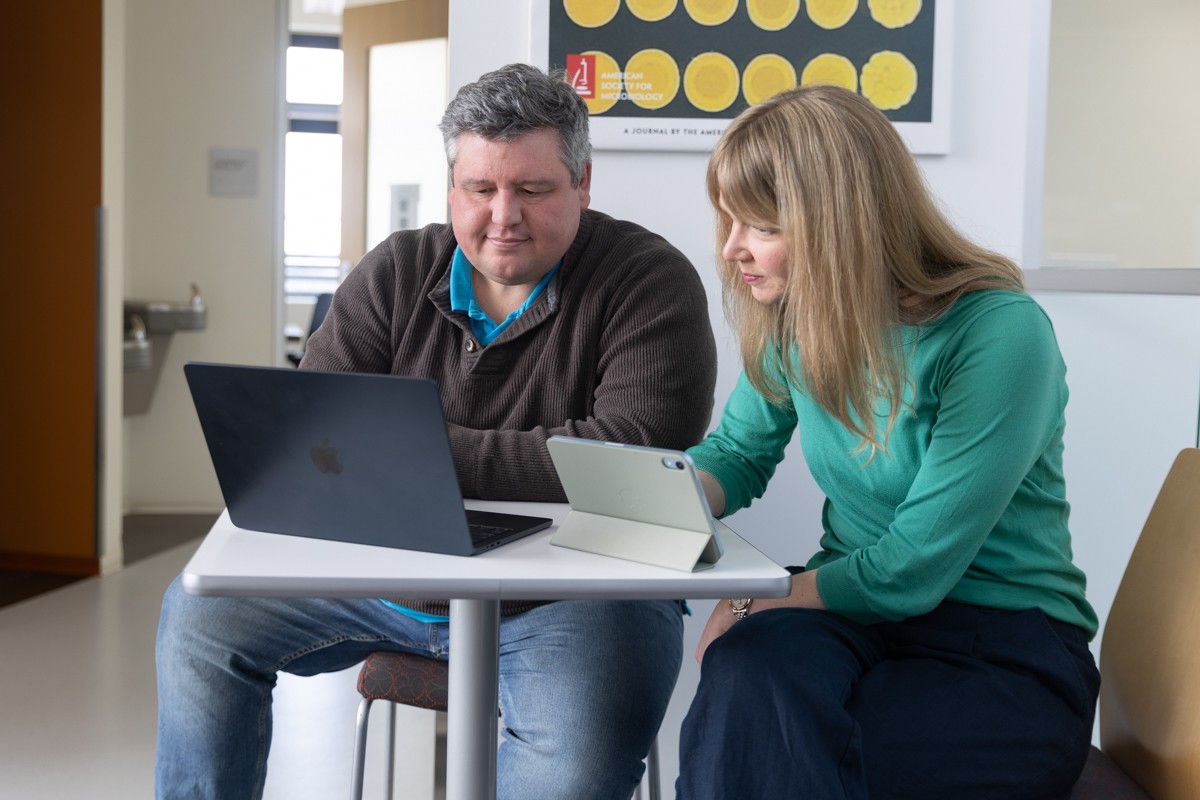
When Kevin Myers needed computer software to support his biological investigations, he taught himself to code. Now he’s sharing that knowledge with others.
Myers, a bioinformatics scientist and lead of the computational biology group at the Great Lakes Bioenergy Research Center, is the first recipient of a new Service and Impact award for the support he provides fellow researchers.
The award, established this year, recognizes GLBRC members who have demonstrated leadership or participation in community building opportunities.
Morgan Davies, a research specialist who served on the award committee, said Myers was chosen for his “ongoing dedication to providing excellent customer service and support to the GLBRC community.”
“We are grateful for the time and talent Kevin has dedicated to these efforts and are excited to acknowledge and celebrate it publicly,” Davies said.
Myers and his team help other GLBRC researchers use computational tools to answer questions about microbes and microbial communities in support of the center’s mission to advance fuels and bio-products made from inedible plants.
The field, known as bioinformatics, combines biology, computer science, and statistics to analyze and interpret data and plays a role in every step of GLBRC research.
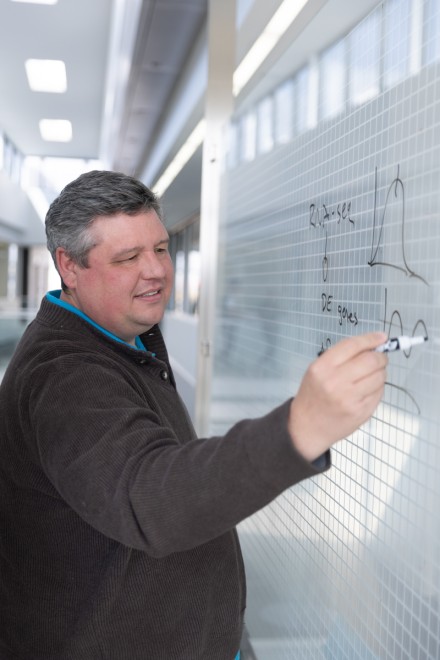
Bioinformatics is like the “plumbing” of science, Myers said. “Most projects have a computational aspect. Even projects that don’t look on the surface – biochemistry or microbiology…. Biology has been moving there in the last decade, and I don’t see it stopping.”
Myers came to UW–Madison in 2006 to study microbiology. He earned a PhD for research on E. coli – he even has the bug tattooed on his arm – and later joined the GLBRC as a postdoctoral fellow focusing on ethanol fermentation.
Along the way, he realized he needed computers to sort and process the vast amounts of data. The software wasn’t available, so he wrote it himself, despite never having taken a computer science class.
“I had to learn it to answer my questions,” he said.
These days his work is entirely computational.
“I put away my pipettes,” he said. “Hopefully forever.”
Myers formed an “all service” community of practice to serve as an informal support group for scientists to exchange ideas and get help with projects. He hosts weekly meetings where researchers can get help with even simple questions like how to install software and import data.
“Staring at that command line is a really intimidating thing,” he said. “Everybody’s got to start somewhere.”
Myers said the group saves researchers from duplicating efforts and embodies GLBRC’s collaborative ethos.
“We’re here as a center to help people,” he said. “It’s something I’m honored to be recognized for, but also something I’m really passionate about. The more that people share data and share ideas, the more viewpoints we can get and the further we can push science.”

